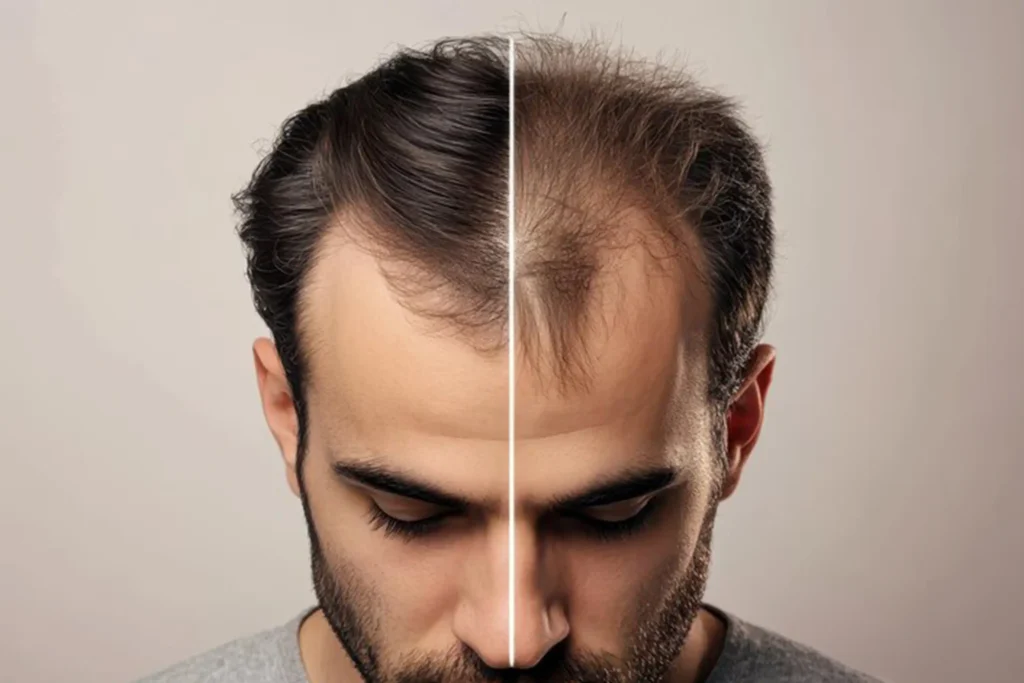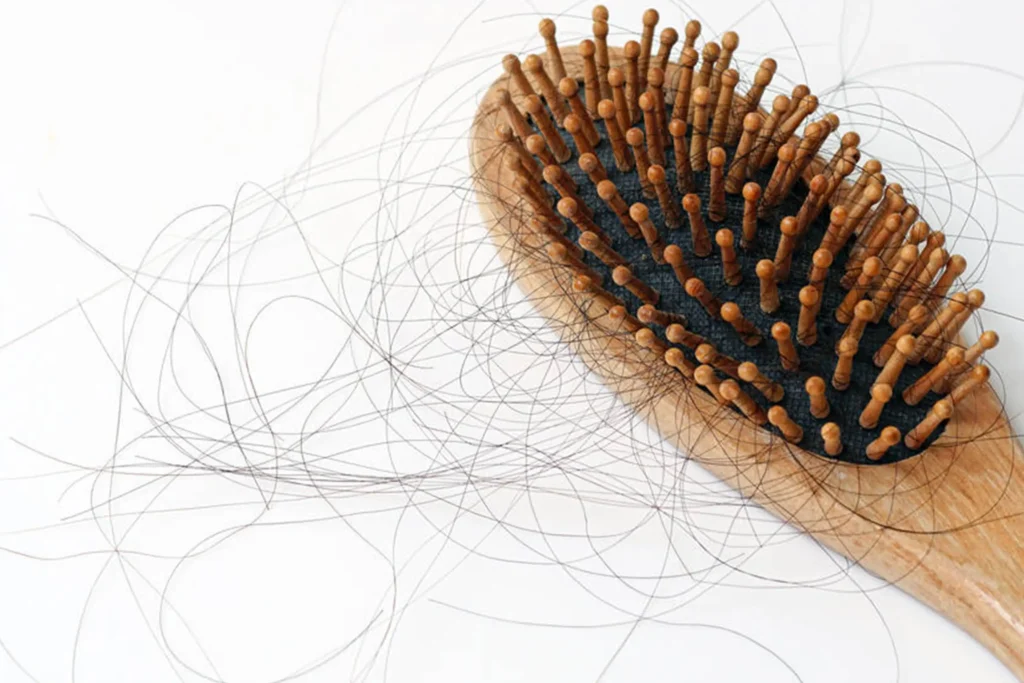
Have you ever looked at your hairbrush or bathroom floor and felt a little worried by the amount of hair you see? Well, you are not alone. A lot of people experience changes in their hair, especially as they start ageing, go through stress, or have health changes. But here is what you need to know: not all hair shedding is a bad thing. There is a difference between hair fall and hair loss.
What is hair fall?
Hairfall is completely normal, and it’s a part of your body’s natural cycle. On average, you lose around 50 to 100 hairs a day. That might sound like a lot, but you will not go bald from it. Your scalp has more than 1,00,000 hair follicles, so losing a few strands daily is nothing to panic about. Hair grows in cycles. The anagen phase is the growth phase. The catagen phase is the transitional phase, and the telogen phase is the resting phase. At the end of the cycle, the hair naturally falls out so that the new hair can grow in place.
Also Read | What to eat for glowing skin and thicker hair
So what is hair loss then?
Hair loss is when hair falls out and doesn’t grow back, or when shedding is excessive. It’s not just a part of the natural hair cycle; it’s a sign that something might be wrong. Hair loss can cause a thinning scalp, a receding hairline, or sudden clumps of hair falling out. In short, hair loss is not just daily shedding; it’s when the balance between hair fall and hair growth is off.
What causes hair fall?
It’s normal to see hair in your hands or the drain when you shampoo or comb your hair. Some people notice more hair fall during certain seasons, like autumn or spring. Ponytails or buns can cause hair to break or fall temporarily. Not getting enough protein or vitamins can cause your hair to weaken and fall more than usual.

What causes hair loss?
Hair loss can be caused by more serious or long-term issues. If your parents or grandparents had thinning hair or baldness, you might too; it’s called pattern baldness. Pregnancy, menopause, or thyroid problems can also lead to hair loss. Diseases like autoimmune conditions or scalp infections can cause hair loss. Some medicines for cancer, depression, blood pressure, and more can lead to hair loss as a side effect. Major life changes or ailments can trigger a condition called telogen effluvium, where lots of hair enters the shedding phase at once.
Also Read | Summer skincare guide: Treating sunburn, sweat rashes & more
Hair fall and hair loss are two different things, and knowing the difference helps you take the right steps. Hair fall is normal and part of your body’s natural process, while hair loss needs attention, especially with sudden problems getting worse. Remember, your hair is a reflection of your health, so if it’s changing quickly, don’t ignore it. Monitor your diet, manage stress, and consult your doctor if necessary.








